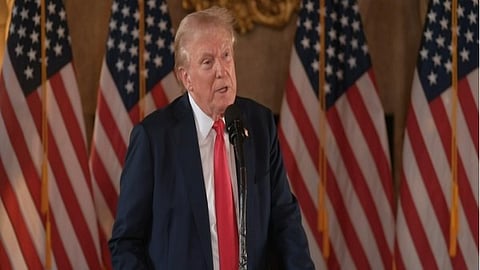

With Donald Trump’s victory in the 2024 Presidential Elections in the United States of America (USA), critics are worried about, among other things, the changes he would bring to the American education system in his second term.
According to a report by Edweek, many advocates for Civil Liberties in the USA warned that a second Trump presidency would be harmful to the federal protections granted to LGBTQ+ students, students of colour, and students who come from low-income households.
In both his 2024 presidential campaign and the first term of his presidency from 2016 to 2020, Trump promised to eliminate the Department of Education and slash K-12 (Kindergarten to Class XII) spending.
Trump’s past track record
During his first term, Trump did not devote much attention or political muscle to his wide conservative wish list for a K-12 agenda, allowing much of it to flounder.
A proposal to unite the education and labour departments made immediate headlines before disappearing into a political black hole.
The Republican-controlled Congress rejected Trump's demands to cut the Education Department's budget by up to 13 per cent and remove popular programmes.
A federal tax credit scholarship programme was proposed as a way to expand school choice, but it never gained legislative traction.
Trump and his Education Secretary Betsy DeVos reversed several major initiatives introduced by the previous Barak Obama administration to safeguard students from marginalised groups, particularly transgender students and students of colour.
The war on “woke”
Since leaving office in 2020, Trump has allied with parent advocates who are resisting what they call "woke indoctrination" in public schools.
He has proposed K-12 reforms that even some of his most ardent supporters believe impracticable, such as allowing parents to directly elect their school principals.
He has pledged to remove federal support for schools that teach critical race theory. Edweek reports that there is no indication that critical race theory, an academic paradigm typically taught at the university level, is frequently used in K-12 classrooms.
